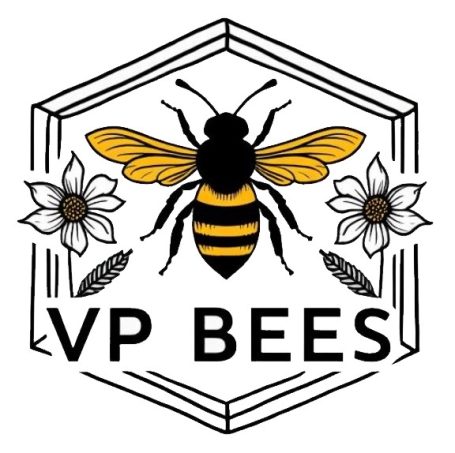VP Bees Apiary isn’t just about honey—it's about creating harmony between people, pollinators, and the planet. Whether you're a backyard beekeeper, a fellow apiary, or simply someone who appreciates nature’s sweetest gift, we welcome you to join our journey in protecting and promoting the bee population.
Bee Conservation
Africanized honey bee (AHB)
Beekeeping has gained immense popularity in recent years, but the presence of feral bees, particularly the Africanized honey bee—often referred to as the "killer bee"—poses significant risks that every beekeeper should consider. These bees are known for their aggressive behavior when disturbed, which can lead to dangerous situations for both beekeepers and bystanders.
One of the main risks associated with keeping feral colonies of Africanized honey bees is their heightened defensiveness. Unlike their European counterparts, these bees exhibit a low tolerance for perceived threats, which means that they are more likely to swarm or attack in larger numbers. This aggressive nature can result in serious injuries, especially for individuals who are allergic to bee stings.
Another concern arises from the potential for Africanized honey bees to displace native bee populations. Their aggressive tendencies can lead to a decline in the diversity of local ecosystems, as native bees may be outcompeted for resources or killed in confrontations. This loss of biodiversity can have long-lasting effects on pollination services essential for agriculture and the environment.
Moreover, keeping feral colonies can make it difficult to control disease and parasites. Africanized honey bees can carry diseases that spread quickly among bee populations, complicating the management practices of beekeepers. The potential for transmitting pathogens increases the risk of losing entire colonies, which poses both economic and ecological challenges.
In light of these factors, it is crucial for beekeepers to assess the risks of maintaining feral bee colonies. Understanding the behaviors and characteristics of Africanized honey bees will help ensure safer beekeeping practices, protecting both the beekeeper's well-being and the environment they work within.
Africanized Bee Prevention is important for both beekeepers and the general public, especially in areas where Africanized honey bees (AHBs), have become established. These bees are more defensive than European honey bees and can pose a threat to humans and animals if disturbed.
🐝 Here are key preventative steps to help reduce the risk of Africanized bee problems for beekeepers:
Requeen Regularly
Use marked, mated queens from reputable breeders (especially European subspecies like Italian or Carniolan).
Requeen aggressive colonies immediately with a gentler queen.
Monitor Hive Behavior
Inspect hives regularly for signs of excessive aggression or swarming.
Replace overly defensive colonies before they become a hazard.
Avoid Open Feeding
This can attract feral or Africanized bees. Use internal feeders instead.
Practice Swarm Control
Prevent swarms by maintaining young queens, providing space, and splitting hives when needed.
